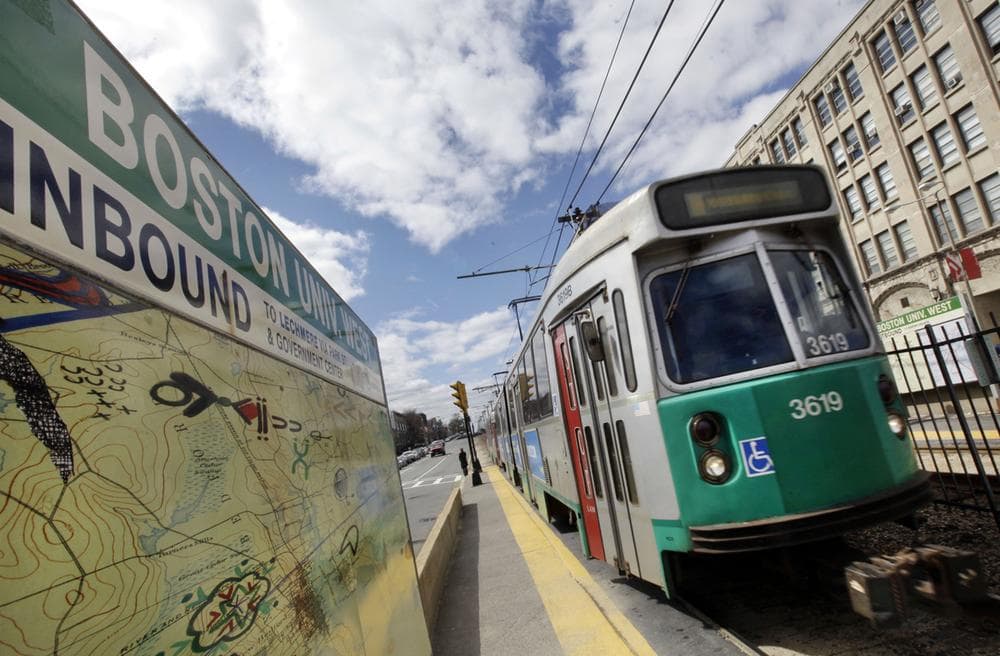Advertisement
Public Naming Rights — And Wrongs

It’s come to this: The MBTA wants to sell naming rights to its most visible stations. The transit agency is always cash-starved for reasons we’ll go into another day, so selling the names of 11 stops including iconic stations such as Park Street, Downtown Crossing and South Station would, we’re told, fund improved maintenance and more Wi-Fi in rail cars.
Here’s another opinion. Changing the names of those stations, indeed selling marketing rights to public property — T stops are public property — is a lousy idea. Sure, we’ve seen baseball stadiums like Chicago’s venerated Comiskey Field changed to U.S. Cellular Field, and once the Houston Astros thought it would be a good idea to change the name of their stadium to Enron Field. That didn’t work out very well.
But now comes this new way for marketers to get the names of their companies in front of consumers. Maybe it’s just me, but somehow it doesn’t feel right to give visitors directions like “Going to the airport? Hop on the Green Line at the Apple MacBook station in the Back Bay, change to the Blue Line at the Wal-Mart station and get off in East Boston at the SpaghettiOs’s stop.” It’s bad enough that Dunkin’ Donuts advertisements encircle and disfigure the pillars that support Logan Airport’s swooping – and publicly funded— traffic ramps.
Michael Sandel, the Harvard philosopher and author of “What Money Can’t Buy,” argues that the worship of markets in recent decades has made us hesitant about bringing our moral and spiritual convictions into the public debate. He says the era of “market triumphalism” has been largely empty of moral substance. “As naming rights and municipal marketing appropriate the common world,” he says, “they diminish its public character.” And that, he concludes, diminishes the democracy we cherish.
Sandel is right, of course. Market values suffuse American life. But are they the only kinds of values we want? He asks, “Do we want a society where everything is for sale?”
We said a loud collective no to that question when Boston built a magnificent public library, architecturally distinguished courthouses and, of course, Bulfinch’s majestic State House. These are public buildings whose architecture makes a statement about the kind of city and state we want; they have an air of dignity befitting institutions funded by the free citizens of a democracy.
We’re all subject to hundreds of messages a day crafted to catch the eye, fire the imagination and inspire us to open our wallets. But shouldn’t there be a commercial-free zone? Surely the conversion of publicly financed properties into marketing tools should be subject to debate that all of us — not just the temporary stewards of the MBTA— control.
Here is where things now stand: The city once called the Athens of America may change the name of a T stop honoring the memory of one of Boston’s and the country’s greatest painters, John Singleton Copley, to – well, we don’t know. Maybe it will be the Toyota stop or the Starbucks stop or some other corporate Goliath’s name. But chances are that once the mortgage is signed, the station will never again honor the artist whose name has graced it for a century — and that’s a public disgrace.
This program aired on August 1, 2012. The audio for this program is not available.